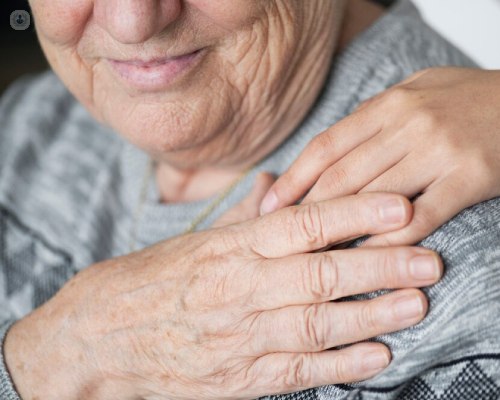From mobility to memory: key tips for ageing well at home
Autore:
As people age, maintaining health and wellbeing becomes increasingly important. The ability to live independently while ensuring safety and comfort is a priority for many older adults. In this article, Dr Gaggandeep Singh, aims to provide valuable information on how to age well at home, covering aspects of mobility, nutrition, mental health, and safety.
What are the key factors in maintaining mobility at home?
Mobility is a crucial aspect for maintaining independence as one ages. Here are several tips to enhance mobility:
- Regular exercise: engaging in regular physical activity is vital for maintaining strength and flexibility. Aim for at least 150 minutes of moderate-intensity aerobic activity each week, including activities like walking, swimming, or cycling. Balance exercises, such as tai chi or yoga, can also help prevent falls.
- Home modifications: make simple modifications to the home to enhance mobility. This may include installing grab bars in bathrooms, using non-slip mats, and ensuring that walkways are clear of obstacles. Consider using a walker or cane if needed.
- Footwear: wearing supportive, well-fitted shoes can prevent falls and enhance mobility. Avoid slippers or shoes with slippery soles.
- Regular check-ups: routine check-ups with a healthcare professional can help monitor mobility and identify any underlying health issues that may affect movement.
How can nutrition impact health and wellbeing in older adults?
Nutrition plays a critical role in maintaining overall health and can significantly impact physical and cognitive wellbeing. Here are some dietary tips:
- Balanced diet: ensure a balanced diet rich in fruits, vegetables, whole grains, lean proteins, and healthy fats. This provides essential nutrients to support overall health.
- Hydration: staying well-hydrated is crucial. Older adults may have a reduced sense of thirst, so it’s important to drink water throughout the day, even if not feeling thirsty.
- Limit processed foods: minimise the intake of processed foods high in sugars, salts, and unhealthy fats. These can contribute to various health issues, including hypertension and obesity.
- Supplements: discuss with a healthcare provider whether supplements, such as vitamin D or calcium, may be beneficial, especially if dietary intake is insufficient.

What strategies can help maintain cognitive health?
Cognitive health is vital for maintaining independence and quality of life. Here are some effective strategies:
- Mental stimulation: engaging in activities that challenge the brain can help maintain cognitive function. Consider puzzles, reading, learning a new skill, or playing musical instruments.
- Social engagement: staying socially active is important for mental wellbeing. Join clubs, participate in community activities, or maintain regular contact with friends and family.
- Routine: establishing a daily routine can help improve memory and organisation. Use calendars, reminders, or digital apps to keep track of appointments and tasks.
- Sleep hygiene: prioritising good sleep is essential for cognitive health. Establish a regular sleep schedule, create a calming bedtime routine, and ensure a comfortable sleeping environment.
How can emotional wellbeing be supported as we age?
Emotional wellbeing is a significant component of overall health. Here are some ways to support mental and emotional health:
- Mindfulness and relaxation: practices such as mindfulness, meditation, and deep breathing can reduce stress and enhance emotional wellbeing. Consider dedicating time each day to relax and unwind.
- Seek support: don’t hesitate to reach out for support from family, friends, or professionals if feeling overwhelmed or isolated. Mental health professionals can provide valuable assistance.
- Purposeful activities: engaging in activities that provide a sense of purpose, such as volunteering or pursuing hobbies, can enhance emotional health and provide fulfilment.
What safety measures should be taken at home?
Ensuring safety at home is essential for preventing accidents and maintaining independence. Here are some safety tips:
- Fall prevention: falls are a leading cause of injury among older adults. Ensure that rugs are secured, lighting is adequate, and pathways are clear. Consider using night lights to illuminate areas during the night.
- Emergency preparedness: keep a list of emergency contacts and a plan for emergencies. Consider investing in a medical alert system that can provide immediate assistance if needed.
- Medication management: keep medications organised and take them as prescribed. Regularly review medications with a healthcare professional to ensure they are still necessary and appropriate.
When should I seek medical advice for ageing-related issues?
Regular check-ups with a healthcare provider are essential for monitoring health as one ages. Seek medical advice if experiencing:
- Significant changes in mobility or balance.
- Unexplained weight loss or appetite changes.
- Memory problems that interfere with daily life.
- Persistent feelings of sadness or anxiety.
By addressing these concerns early, individuals can receive the necessary support and interventions to promote health and wellbeing.
Ageing well at home requires a proactive approach that includes maintaining mobility, prioritising nutrition, supporting cognitive and emotional health, and ensuring safety. By adopting these strategies, older adults can enhance their quality of life and continue to enjoy their independence.
If you would like to reach out to Dr Gaggandeep Singh, head on over to his Top Doctors profile today.


